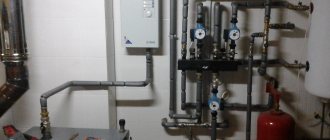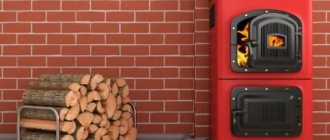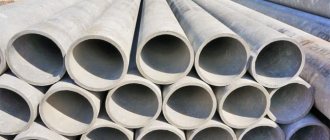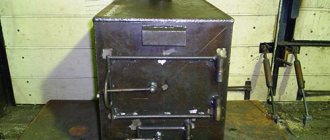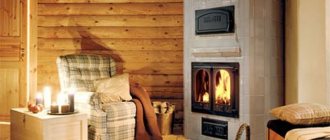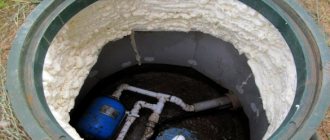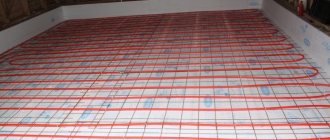Liquid fuel boilers using diesel fuel occupy about 20% of the market. With a reliable power supply and regular maintenance, they are extremely reliable and durable. Diesel boilers, on average, have a higher efficiency than gas or solid fuel boilers - 90-96%, they do not require costly organization of a gas pipeline and paperwork, large rooms for storing fuel, and after startup they are completely autonomous.
However, the high cost of diesel fuel causes high operating costs: higher than gas and even solid fuel boilers, but cheaper than electric boilers. High operating costs can often be offset by purchasing diesel fuel at wholesale prices or from local friends.
What are diesel heating boilers?
Why are they needed and how are they used?
Diesel Kiturami Turbo and plastic fuel storage tank.
Diesel is supplied using a fuel pump. The main reasons for choosing diesel fuel boilers are:
- absence of a gas main in the place of residence;
- lack of desire for constant heating with wood or coal, increased care and cleaning of heating equipment, organization of storage of large volumes of solid fuel;
- availability of free access to diesel fuel or the opportunity to purchase it at a favorable price (from agricultural enterprises, tractor drivers, KAMAZ or bus drivers);
- small heated area, ranging from 40-100 m2.
Even if there is a gas main in a residential area, the cost of connecting to it (permit, design, materials, etc.) is quite high. At the same time, the initial costs of organizing heating with a diesel boiler are minimal: no permit is required, only a tank for storing diesel fuel is needed (up to 0.8 m3 can be stored directly in the boiler room; when heating 100 sq. m., this volume is enough for almost the entire heating season).
Design and principle of operation
The design of diesel boilers using the Viessmann Vitorond 200 as an example.
Diesel heating boilers differ from gas boilers only in the burner: it is equipped with a turbocharger, which provides the necessary pressure and sprays fuel throughout the combustion chamber.
Also, diesel fuel requires preheating before spraying; special nozzles are used for spraying. This burner design implies a constant supply of power, so boilers running on diesel fuel cannot be energy independent. In domestic conditions with a high probability of power supply interruptions, it is recommended to additionally purchase a diesel generator.
Due to the differences only in the design of the burner, universal gas-diesel models are common, in which the conversion from gas to diesel and back is carried out by simply changing the burner. Models with a replaceable burner are justified for the temporary use of diesel fuel, when in the future it is planned to connect to the gas mains or when there is free, but not constant access to diesel fuel.
Otherwise, the operating principle of household diesel boilers is standard:
- The fuel sprayed by the burner nozzles is ignited and burned.
- The walls of the combustion chamber are a heat exchanger, inside of which there is a coolant.
- The heat exchanger transfers thermal energy to the coolant, which naturally or forcedly (using a circulation pump) circulates through the heating system.
Specifics of operation
The burners of diesel heating boilers operate quite noisily; even with the combustion chamber closed, they fill the space with the smell of diesel fuel, so for the operation of the boiler unit it is necessary to allocate a separate boiler room. The requirements for the premises are the same as when installing a gas boiler, i.e. in accordance with SNiP 42-01 and MDS 41.2-2000, namely:
- ceiling height – at least 2.5 m for a room area of more than 4 m2;
- the presence of an openable window with an area of 0.03 m2 per cubic meter. meter of room volume + structures with a fire resistance limit of at least REI 45, protecting the boiler room from neighboring ones;
- There should be a free space of 1 meter in front of the boiler;
- doors with a width of at least 80 cm and a bottom gap of at least 2 cm;
- supply ventilation at the rate of at least 8 cm2 for each kW of boiler power, from neighboring rooms - at least 30 cm2/kW.
- The boiler is connected to the electrical network using a separate three-wire cable (as a rule, included in the kit), through a separate RCD (the rating of which is always indicated in the boiler passport).
- the presence in the boiler room of a separate grounding bus, to which the boiler body is subsequently connected. In general, grounding a diesel boiler is carried out similarly to a gas boiler.
Organization of a boiler room with a fuel storage tank.
A fuel storage tank is also installed in the boiler room. If the volume is more than 0.8 m3, it must be taken outside, but it is worth considering that in this case the choice of diesel models is greatly narrowed: the boiler fuel pump must have the appropriate suction power. Special tanks for storing diesel are used as containers, usually made of strong plastic that is resistant to aggressive liquids and external influences.
For external storage, 2 options are used: a set of plastic tanks connected by a pipeline or an underground plastic/metal tank (like a gas holder).
When storing above ground, it is necessary to insulate the tanks and pipeline, since already at +5°C the viscosity of diesel fuel increases, which complicates its transportation and increases the load on the fuel pump. It is not recommended to place containers in direct sunlight. You can also use frost-resistant diesel fuel, but the cost of using such fuel is simply unjustified.
The most profitable and widespread is the underground storage option, since the layer of earth provides a stable temperature both on hot days and on cold days. In addition, the fire hazard of an underground tank is minimal, and the cost of organization is often cheaper than in the above-ground version.
Most diesel boilers have a closed combustion chamber, so to remove combustion products, an inexpensive coaxial (side) chimney is sufficient, the diameter of which must correspond to the boiler outlet pipe. The only caveat is that the chimney must be positioned at a slight angle to prevent condensate formed in the chimney from flowing back into the boiler.
The formation of condensation is a natural process, the phenomenon is also called the dew point, its value is usually 7-10 degrees lower than the temperature of the exhaust gases (for example, at a smoke temperature of 85°C, the dew point is 78°C). Therefore, during cooling, condensation forms in the outer part of the chimney, which is dangerous for the metal components of the boiler.
In addition to placing the chimney at an angle of 2-3 degrees, the formation can be prevented by insulating the outer part of the chimney. The formation of condensate is characteristic only of convection models; in condensing boilers, the temperature of the exhaust gases practically corresponds to atmospheric temperature.
How to choose a room thermostat and save up to 30% per month on heating
Diesel boiler design
A diesel boiler for heating a private house has a simple design. The combustion chamber contains a nozzle burner. The firebox is made in the form of packaged pipe heating surfaces, inside of which a water coolant circulates, and outside they are washed by hot flue gases.
Heat transfer to water occurs in the form of convective and radiative heat exchange. The latter is formed from a torch of burning diesel fuel emerging from the nozzle of the burner device.
The heated water, thanks to natural or forced circulation, enters the intra-house system, transferring heat to the internal air in the room, and then returns to the unit, repeating the heating cycle. Flue gases, having transferred heat to the water, are released into the chimney and the environment.
Main elements of an oil-fuel boiler:
- Burner for heating oil.
- Nozzle.
- Turbocharging
- Cleaning filters for diesel fuel.
- Feed pump in forced circulation circuits.
- Remote Control.
- Automatic safety with thermostat, combustion sensors.
- Fan for air supply.
The main difference between a DC and a gas heater is the special design of the burner with a fan to ensure a fine spray of diesel fuel. Sometimes it is equipped with an inflatable burner with air injection to complete the combustion process.
The only side effect of such structures is noise during operation, so the diesel boiler is placed in a separate unit with good sound insulation.
When choosing a burner device, take into account the suction depth. When the fuel tank is installed at o, then a burner with a high given indicator will be required; if it is higher than the boiler level, then it can be neglected.
Diesel heating boilers for private homes completely burn liquid fuel without loss with low flue gas temperatures, so they do not require an expensive ceramic chimney. There are also no special requirements for the height of the chimney, since the draft is supported by supercharging.
In connection with this, when installing a diesel boiler room, it will be enough to install an inexpensive coaxial chimney with a built-in ventilation duct, which will further improve the characteristics of air flow into the combustion chamber. It comes out through the wall of the building.
Insulation of smoke ducts is also not required, since the installation has a recuperator that prevents overheating of the pipes and the formation of condensation inside the chimney. A wall-mounted diesel boiler must have a chimney diameter equal to the outlet pipe from the firebox.
There are fire safety restrictions for installing a fuel tank in a boiler room building - no more than 0.8 m3. Typically, diesel fuel boilers are equipped with polymer containers that are resistant to aggressive environments. According to the connection diagram, they are installed outdoors.
In this case, the physical properties of diesel fuel and its ability to increase viscosity at outside air temperatures below +5 C are taken into account, after which its speed through the fuel lines drops, which creates combustion instability or a complete stop in the supply of diesel fuel to the burner device. Therefore, when placed externally, the diesel pipeline system requires insulation or independent heating.
Diesel fuel consumption
Specific heat of combustion 1 liter. diesel fuel - 10,300 kcal or 11.9 kW. This means that to obtain 1 kW of thermal energy, it is necessary to burn 0.084 liters. diesel fuel. It is also worth considering the efficiency, which, depending on the model, averages 90-95%, which means that about 5-10% of the thermal energy is not transferred to the coolant.
Total, according to approximate calculations, fuel consumption of a diesel boiler = Boiler power, kW / 10 .
Often the indicators are already indicated in the boiler passport. For example, the well-known budget Kiturami TURBO 13R (13 kW) with an efficiency of 86% consumes 1.97 kg/hour or 2.25 l/hour. However, this is only with continuous operation at full power. In practice, the boiler is active on average only 1/3 of the time, so the result can be safely reduced by 2-3 times.
For example, according to reviews from owners of houses with an area of 100-120 m2, Kiturami TURBO 13R consumes from 5 to 7.5 liters of diesel fuel per day, depending on the degree of insulation of the house, temperature settings and the activity of using hot water.
Diesel heating: general information
Installing a diesel heating boiler for a private home is justified if there is no main gas in the area, there are difficulties with firewood, and electric heating does not justify the costs. In general, the system is designed the same as any other with water as a coolant. The only difference is that diesel heating boilers are used as heat generators, running on diesel fuel, which is familiar to many drivers. The heated coolant circulates through the heating system and releases heat through radiators or water-heated floors - depending on how it is designed.
Reviews of boilers running on diesel fuel: advantages and disadvantages
| Advantages | Flaws |
| High autonomy - after startup, the boiler requires absolutely no attention and can operate for weeks, you just need to provide the required amount of fuel | High cost of fuel – when purchased at a gas station or even at wholesale prices by ordering a fuel truck |
| High reliability - diesel engines have one of the longest service lives, on average 10-14 years (with a steel heat exchanger) and more (with copper or cast iron) | All models are exclusively energy-dependent - for the boiler to operate, it is necessary to ensure a continuous power supply |
| High efficiency - on average 90-95%, although budget models still have figures of 85-89% | Increased noise – the noise from the burner is noticeable not only during ignition, but also during operation |
| Availability of fuel in any region of the country | The need for a separate room for the boiler room - not only because of the noise, but also because of the smell |
| A simpler and more cost-effective installation process, no need to obtain permits or project approvals | Almost all models are floor-standing |
| Almost all models are equipped with protection against overheating and freezing, stopping the circulation pump |
Which diesel fuel is most often used for heating a cottage in the country?
If the dacha or cottage is located remotely from gas distribution networks, a liquid fuel boiler is mainly used for heating and hot water supply of housing, the functioning of which requires ideal diesel fuel or diesel fuel.
Mini gas station with diesel fuel in the country
Because Since housing is heated mainly in the cold season at sub-zero outside temperatures, winter diesel fuel is a suitable type of fuel. It has a low solidification temperature and is used in extreme cold.
In addition to its relatively inexpensive price, winter diesel fuel is also characterized by high efficiency, which is an additional advantage of its use for heating cottages and summer houses. Also, during frequent power outages, a diesel boiler and heating system can ensure complete autonomy of housing for a long time.
How to choose a diesel heating boiler for a private home
Convection or condensation
The operating principle of conventional convection and condensing boilers.
The efficiency, and therefore the economy, of a diesel heating boiler depends on the method of using the thermal energy released during the combustion of diesel fuel:
- convection - a standard type of boiler in which the coolant is heated by direct combustion of fuel, part of the heat is lost with combustion products (exhaust gas temperature is about 75-110°C);
- condensing - a modern boiler design that implies the presence of an additional heat exchanger that extracts heat from condensate, which in turn is formed from combustion products leaving the chimney. Thus, it is possible to accumulate almost all the heat obtained during combustion (the temperature of the exhaust gases is on average 35-45°C).
As a result, the efficiency of condensing boilers is 15-20% higher, however, the cost of such models is 1.5-3 times higher: usually from 100 thousand rubles. Therefore, the payback of such technology depends on the volume of fuel burned.
Wall or floor
Due to the larger dimensions of the burner and the greater weight of the boiler unit as a whole, diesel boilers are usually floor-standing. There are also wall-mounted models, for example, the Swedish CTC 950 RU. However, at the moment we do not recommend considering them for purchase: it is difficult to find them on sale, wall-mounted models are 1.5-2 times more expensive than floor-standing analogues, and the service structure is often not so developed even in Moscow and Moscow Region, not to mention the regions .
Single-circuit or double-circuit
A visual principle of operation of double-circuit boilers with priority for hot water supply (DHW).
Single-circuit models are designed exclusively for heating. Double-circuit systems have an additional hot water supply (DHW) circuit and when the tap is opened at the point of consumption, they begin to heat sanitary hot water, which does not mix with technical water in the heating circuit. Of course, the choice depends on the requirements for the boiler.
At first glance, it is better to choose a single-circuit boiler, since the cost of fuel is already high. However, dual-circuit models are still more effective, this is confirmed by the significantly greater demand for them. The cost of a double-circuit boiler in the budget and mid-price category is only 5-15% higher, while to organize hot water supply in a house in another way you will need from 15 to 50 thousand rubles, and the cost of electricity that will be spent on heating is higher than the cost diesel fuel.
Heat exchanger material
The heat exchanger is a key element; not only the efficiency but also the durability of the boiler depends on the material of its manufacture; it is partially impossible to replace it, and a full-fledged element is expensive. So, the heat exchanger can be:
- steel - the simplest, lightest and most inexpensive to manufacture, installed on all budget and some models in the mid-price segment. The steel heat exchanger is thin and most susceptible to corrosion; even with an anti-corrosion coating, it rarely lasts more than 12-14 years. However, a steel heat exchanger is more resistant to temperature changes and mechanical shocks, heats up quickly (but also cools down quickly).
- copper - more expensive to produce, but more thermally conductive and more resistant to corrosion. The service life of copper heat exchangers is up to 15-17 years (or more).
- cast iron is the heaviest and thickest, practically invulnerable to corrosion. Cast iron heat exchangers take a long time to heat up, but also retain heat much longer, their service life is more than 25 years. In addition to heaviness, the disadvantage is vulnerability to temperature changes and mechanical stress; simply put, the alloy is quite fragile (with the exception of expensive gray cast iron alloys).
How to choose a waste oil boiler for heating a private home
Open or closed combustion chamber
The type of combustion chamber determines the environmental friendliness of the boiler, ventilation requirements and the choice of chimney:
- an open combustion chamber is classic and most common among gas and heating oil analogues, but is not always justified for diesel boilers. The air required for fuel combustion in the open combustion chamber is taken from the room through holes in the boiler body, and the exhaust is discharged through a classic vertical chimney. This means that in addition to organizing a more complex chimney, high-quality ventilation of the room is necessary; it is also worth mentioning that soot formation and contamination of a boiler with an open combustion chamber is higher.
- closed combustion chamber - most models are equipped with it. To organize the work, a simpler and more cost-effective coaxial chimney is sufficient. Air intake occurs through the internal chimney pipe, and exhaust through the external one. With this operating principle, the room is less polluted, although the characteristic smell of diesel fuel is still present.
Efficiency
Efficiency factor (efficiency) is the ratio of the volume of fuel consumed to the volume of heat released and accumulated by the coolant, i.e. heating boiler efficiency. If for gas or solid fuel boilers efficiency is not the most important indicator, then for diesel, due to the high cost of each extra liter of fuel, this is a significant selection criterion.
As mentioned earlier, the average is 90-95%. However, there are excellent models from well-known manufacturers Kiturami and Navien with an efficiency of 86-89%. Despite their lower efficiency, they have an extremely low initial cost, are known for reliability and ease of maintenance, have a developed service structure and readily available spare parts.
It makes no sense to consider models with an efficiency lower than 86%, otherwise, due to inefficient energy conversion, the cost of their operation will be comparable to electric boilers.
Minimum required power
For a standard uninsulated house with 2 bricks and a ceiling height of 2.7 m, located in the climatic zone of the Moscow region, the required power is calculated quite simply: 1 kW for every 10 m2 of heated area. We also recommend setting aside a power reserve of 15-20%.
For example, for a house with an area of 150 m2, the minimum required power of a diesel boiler = 150:10*1 * 20% = 18 kW. Please note that it is also undesirable to overdo it with power; the boiler will cycle too often, which will lead to faster wear.
How to accurately calculate the required boiler power Individual calculation, formula and correction factors
Additional criteria
Having decided on the main criteria, you can pay attention to such features as:
- the presence of heat and sound insulation - an additional layer of thermal insulation reduces heat loss through the boiler body itself and increases efficiency, and sound insulation will eliminate the noisy operation of the burner, which is especially important if there are thin walls between the boiler room and the living room;
- automation functionality - the presence of autodiagnostics, heating modes, the ability to program work for a day or a week in advance, the presence or possibility of connecting an external thermostat, weather-dependent control.
Advantages
Let's start right away by considering the winning aspects (we'll discuss those that aren't so good later) that characterize heating a country house with diesel fuel. This question is relevant for many owners of private housing, because diesel fuel is not cheap; frankly speaking, a lot of it is required for the heating season.
The rating of this equipment in European countries is quite high, thanks to its advantages. Let's list the main ones.
The efficiency of the equipment under discussion is high, reaching 95% under the following conditions:
- correct installation of the boiler;
- furnace installations in accordance with all rules and regulations;
- high-quality insulation of the house;
- installation of double-glazed windows;
- proper storage of fuel reserves;
- using high-quality fuel;
- timely maintenance;
- competent choice of equipment power, manufacturer, model.
The efficiency can reach up to 98% when using a condensing type boiler, but more on that later.
- Wide range of model range, manufacturers, power characteristics, etc.
- Economical consumption of electrical energy.
- Environmental friendliness, which is a fairly current trend in modern European society. When burned, almost no harmful substances or gases are formed.
- High level of safety compared to gas boilers.
- Autonomous, automatic operation that does not require constant human intervention.
- Inertia is not typical for the design of diesel boilers (unlike solid fuel analogues). Productivity decreases immediately.
- Liquid fuel takes up much less storage space than solid fuel (peat, firewood, coal).
- Possibility to use used engine oils, which are cheaper. At the same time, the issue of recycling waste material, which is completely burned in a diesel unit, is resolved. Again, a reference to environmental friendliness.
Don't miss: Do-it-yourself heat exchangers - how to make plate, water, pipe-in-pipe, air, drawings
The best known manufacturers and models: characteristics and prices
Kiturami Turbo 13R
The most common and time-tested Korean double-circuit diesel boiler with a power of 13 kW (there are versions of other powers). Since the boiler is in the budget price category, its heat exchanger is made of steel, although the secondary one (for hot water supply) is copper. Despite the efficiency of 86% and consumption up to 1.97 kg/hour (2.25 l/hour), the model is popular due to its reliability, wide automation functionality and affordable price, one of the lowest on the market.
The main advantage is the factory-installed room thermostat, with which you can more accurately and conveniently regulate the temperature (which also affects efficiency). The automation also has various heating modes, self-diagnosis, overheating protection and a freeze prevention mode.
Cost : 29,000-33,500 rubles.
Navien LST-17KG
Another common Korean double-circuit diesel fuel boiler with a capacity of 17 kW. Equipped with a steel heat exchanger. It has a higher efficiency of 90% and lower consumption - 1.93 kg/hour (2.2 l/hour). The model is still equipped with remote control via a room thermostat. A significant advantage is the ability to program the operation of the boiler, which allows you to significantly reduce fuel consumption, for example, by programming a temperature decrease to 15°C when the owners are away from home (work, rest, travel).
According to reviews from owners and installation practice, for more than 6 years of operation of these models, almost no single malfunction was observed.
Cost : 33,200-35,000 rubles.
De Dietrich EFU 22 (B-Control)
One of the best diesel boilers for heating a private home, especially those with an area of more than 200 m2. This is a French low-temperature single-circuit model with a power of 22 kW. It features a durable cast iron heat exchanger and high efficiency - up to 97.3%. The boiler complies with the highest environmental standards, in practice it operates almost silently (thanks to a heat exchanger with three-way gas removal and sound insulation). It has functional controls, auto-ignition, and the ability to connect an external thermostat (it is not included in the kit). The only disadvantages are the heavy weight (185 kg) and high cost.
Please note that the boiler has an open combustion chamber and an atmospheric burner, and therefore requires natural ventilation through a classic vertical chimney.
Cost : 116,000-135,000 rub.
Ferroli ATLAS 32
A universal Italian single-circuit model with a replaceable burner (diesel - SUN G burner, gas - SUN M) with a power of 32 kW. It is characterized by high reliability and efficiency up to 94.3%, as well as a durable cast-iron heat exchanger. There is protection against overheating and freezing, it is possible to connect an external thermostat. The boiler operates almost silently, but has an open combustion chamber. No obvious deficiencies were identified during installation and operation experience.
Cost : 53,500-61,000 rubles. + Ferroli SUN G burner – 25-29 thousand rubles.
Lamborghini AX 3 32
Another Italian universal single-circuit boiler with a replaceable burner (gas-diesel) with a power of 32 kW. It is practically no different from the previous analogue, it is equipped with the same cast-iron heat exchanger with three-way gas exhaust, is known for its reliability, and has a stylish design. However, it has a lower efficiency of 91.6% and more limited functionality (connecting external control is possible). There is a layer of thermal insulation under the body, and ease of operation and maintenance can also be noted.
Cost : 51-65 thousand rubles + Lamborghini Fire 3 burner – 22,600-27,000 rubles.
Criteria for choosing a heating boiler using diesel fuel
When choosing a diesel heat generator, special attention should be paid to the following aspects:
Thermal power of a diesel boiler. In general, it is generally accepted that to effectively heat an area of 10 m2 in the middle zone, 1 kW/h of thermal energy is required; in cold regions this figure can be 1.3 – 1.4 kW/h.
Possibility of temperature control. There are three main types of liquid fuel installations:
With a single-stage burner, constantly operating at maximum mode;
With a two-stage burner, providing the ability to operate in 50 and 100% modes:
With an adjustable burner that allows settings over a wide range, which significantly reduces energy consumption.
Fuel consumption. It is this indicator that determines the economic feasibility of using a diesel unit; in addition, based on these data, it is possible to prepare in advance the necessary fuel supply for the entire heating season.
In addition, one should take into account the possibility of creating a hot water supply circuit and converting the installation to use natural gas, in the case of a centralized pipeline supply.
Prices: summary table
| Model | power, kWt | Number of circuits | Efficiency, % | price, rub. |
| Kiturami Turbo 13R | 13 | double-circuit | 86 | 29 000 |
| Navien LST-17KG | 17 | double-circuit | 90 | 33 000 |
| De Dietrich EFU 22 (B-Control) | 22 | single-circuit | 97,3 | 116 000 |
| Ferroli ATLAS 32 | 32 | single-circuit | 94,3 | 80 000 |
| Lamborghini AX 3 32 | 32 | single-circuit | 91,6 | 74 000 |
Installation and connection
The installation process of diesel boilers does not differ from gas or solid fuel analogues and is carried out in accordance with SNiP 41−01−2003 “Heating, ventilation and air conditioning” and SP 7.13130.2009 “Heating, ventilation and air conditioning. Fire safety requirements." Work is carried out at a temperature not lower than +5°C.
The boiler wiring also does not differ from that used when installing analogues; an example of a classic connection diagram to a closed-type system is shown in the photo below.
Connection diagram of a diesel boiler to a closed heating system.
All overall and connecting dimensions, as well as a detailed installation algorithm, are always described in the boiler operating instructions; today, an electronic copy of the instructions for any of the models can be found on the Internet. Please note that installation, adjustment and first start-up must be carried out by a certified specialist who will put the appropriate stamp in the boiler passport: without it, most manufacturers refuse warranty obligations.
What units at the dacha and cottage use diesel fuel?
There are a number of models of heating boilers for home using diesel fuel.
The boiler rating is topped by products from German companies. Buderus Logano, G125 and G225 series, Viessmann Vitorondens, Vaillant iroVIT VKO stand out favorably
French boilers, De Dietrich, NeOvo, EcoNox, EFU and GTU, are of good quality . Judging by their popularity among European consumers, De Dietrich have serious competition with boilers made in Germany.
Inexpensive Italian-made models - Fondital Capri, RTF and RTFD series, Nova Florida, BTF and BTFD, RTF and RTFD series, and Korean - Kiturami, STSO and Turbo series, Olympia OLB.
Diesel boilers for heating and hot water supply to cottages and cottages are produced with one and two circuits. Each equipment has its pros and cons:
- Single-circuit boilers - have high performance and are used for connection to a heating system. There is no water heating. If DHW connection is required in the future, the heating system will be equipped with an indirect heating boiler. The advantages of single-circuit boilers are heating large rooms.
- Double-circuit boilers - the equipment takes into account the DHW and heating circuits. Many design models use a biothermal or separate heat exchanger. Modern models are equipped with built-in storage capacity. The advantage of this design of a diesel boiler using diesel fuel is the instant supply of hot water, immediately after opening the water supply tap.
The choice of a diesel boiler is based on the desire to keep the home warm and hot water supplied. Single-circuit boilers are installed for large rooms, double-circuit boilers are used if the house needs to be supplied with hot water.
Maintenance
A feature of boiler equipment using any fuel is the formation of soot inside the combustion chamber and chimney, the formation of scale inside the heat exchanger, clogging of injectors and fuel filter, all this not only reduces efficiency by 25-30%, but can also lead to more serious malfunctions. Therefore, regular maintenance consists solely of inspection and cleaning; it can be carried out not only by calling specialists, but also by yourself, while the warranty remains valid.
Regularity - at least once every 3-5 years; we recommend cleaning the boiler every 1-2 heating seasons and flushing the heat exchanger every 4 years.
- Cleaning and flushing the heat exchanger. When using hard, untreated water as a coolant, scale and other salt deposits form on the inner walls of the heat exchanger, which reduce its cross-section and thermal conductivity. It can be cleaned mechanically, using a solution of citric or hydrochloric acid, or without removing it from the boiler, using hydrodynamic washing. We have already described the detailed algorithm for cleaning the heat exchanger earlier; it is the same for boilers using any fuel.
Soot and rust inside the cast iron heat exchanger sections. - Cleaning the burner, combustion chamber and external walls of the heat exchanger . During operation, soot forms on these elements, debris and dust from the room are retained; a layer of at least 0.5 cm reduces efficiency by more than 10%. The cleaning process also does not differ from analogues, with the exception of a different burner design (we also described it earlier).
- Cleaning or replacing the fuel filter . The fuel filter is not installed in many models of diesel boilers, but it is an extremely important component, since both the degree of soot formation and the service life of the boiler depend on the quality of fuel purification. And given the quality of domestic diesel fuel, fine and even coarse filters, their regular cleaning or replacement is simply a necessity.
The most common consequences of lack of regular maintenance are:
- Parasitic flame . The logic is to receive a signal from the ionization sensor about combustion before the board sends a signal to open the fuel valve / operate the injectors. To solve the problem, simply clean all burner components. Rarely, the cause may be liquid entering the electronic control board.
- The boiler smokes a lot. The classic consequence of clogged injectors: due to the absence of a fuel filter or during soot formation. In open combustion chambers, clogging can also occur due to dust in the room or repair work. To solve the problem, just remove the burner, carefully clean and blow out the nozzles.
Location of the nozzle in the diesel burner.
Is a diesel boiler beneficial for a home?
The benefits of heating your home with diesel become obvious if you consider the main advantages:
- There is no need for permits - the boiler room is installed in any technical room of the house. The installation itself costs the price of the harness. For example, connecting a gas boiler must comply with strict standards. For obtaining permits and preparing project documentation, you will need to spend from 60,000 to 120,000 rubles. Additional costs will be required for equipping a boiler room, connecting a gas pipeline to the house, etc. The real cost of heating consists not only of operating costs, but also connection costs.
- Costs directly for heating itself - fuel consumption is calculated using the formula, 10 kW = 1 kg of diesel fuel/hour. Accordingly, to heat a residential building of 100 m2, you will need 1 kg of diesel fuel per hour or 24 kg per day. In a month, you will need to spend 720 kg. During the heating season, 4320-4500 kg or 5200 liters of diesel fuel will be consumed.
- Additional maintenance - the operating principle of solar heating domestic boilers is associated with the use of a special burner device and fuel pump. During operation, it is necessary to change the fine filter and nozzles. All this increases the cost of heating.
- Additional costs - diesel fuel is supplied to the boiler by a fuel pump, and air is also forced into the combustion chamber - all this requires connection to the electrical network.
A diesel boiler, in terms of its efficiency, is inferior to a classic heat generator running on natural gas. But, if we take into account the high cost of obtaining permits and approvals, a diesel fuel heating device is quite capable of competing with gas-fired boilers.
This is interesting: Diesel fuel boiler (video)

